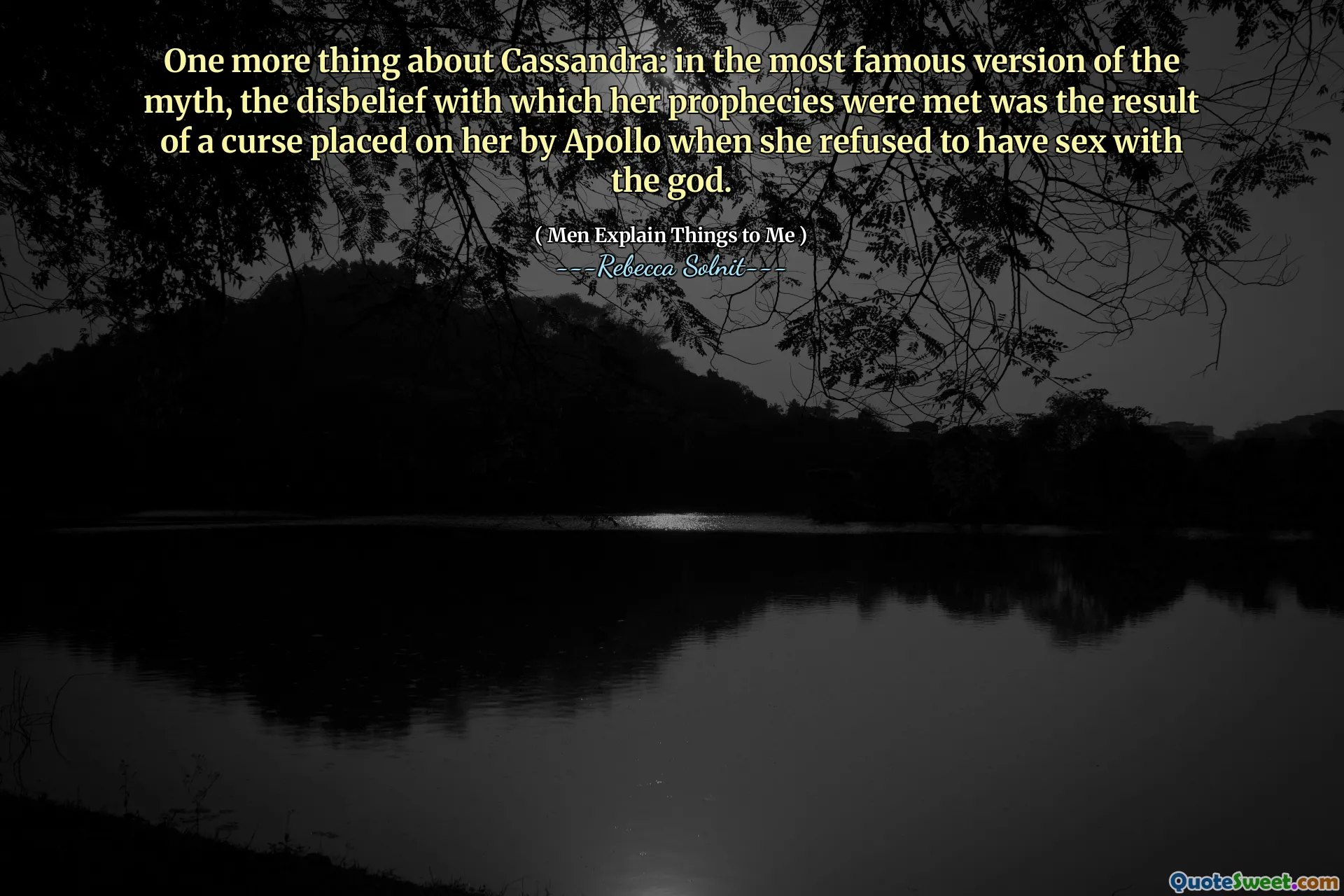
One more thing about Cassandra: in the most famous version of the myth, the disbelief with which her prophecies were met was the result of a curse placed on her by Apollo when she refused to have sex with the god.
[Cassandra's story is a profound illustration of the tragic consequences that arise from the intersection of truth and disbelief. Her gift of prophecy symbolizes knowledge—valuable yet often inconvenient when it exposes uncomfortable truths. The curse placed on her by Apollo underscores how power dynamics and personal rejections can distort perceptions, leading to betrayal and suffering. This myth echoes broader themes of moral and societal blind spots: how individuals or society as a whole can dismiss warnings or truths that challenge their comfort or authority.
Reflecting on this, one might consider modern parallels where voices of dissent or truth-tellers are dismissed, marginalized, or misinterpreted because they challenge prevailing narratives or threaten vested interests. Cassandra’s story reminds us of the importance of listening to and respecting difficult truths, even when they are unwelcome, and of understanding the complex motivations behind disbelief or denial. It also invites us to think critically about how power, gender, and societal expectations influence perceptions and reactions. In contemporary contexts, this myth can be seen as a metaphor for the often tragic consequences of disregarding informed warnings, whether in politics, environmental issues, or personal relationships. Cassandra embodies the tragic hero who bears the burden of knowledge in a world that prefers ignorance or comfort over uncomfortable truths. Her story encourages us not only to acknowledge the truths others may present but also to examine the reasons behind our resistance to them, fostering a more empathetic and open societal framework.]







